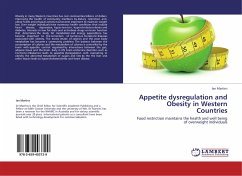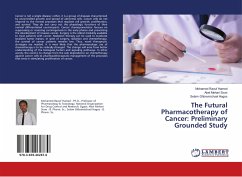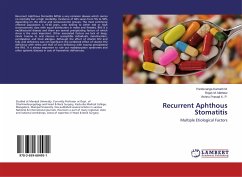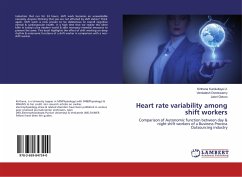
Appetite dysregulation and Obesity in Western Countries
Food restriction maintains the health and well being of overweight individuals
Versandkostenfrei!
Versandfertig in 6-10 Tagen
27,99 €
inkl. MwSt.

PAYBACK Punkte
14 °P sammeln!
Obesity in many Western Countries has cost communities billions of dollars. Improving the health of community members by dietary restriction, anti-obese foods and physical activity has become important to maintain weight loss. Over weight individuals have numerous health conditions that include heart disease, depression, hypertension, hypercholesterolemia and diabetes. Interests in low fat diets and anti-obese drugs on brain function that determines the body fat metabolism and energy expenditure has become important to the correction of numerous metabolic diseases associated with obesity. The ...
Obesity in many Western Countries has cost communities billions of dollars. Improving the health of community members by dietary restriction, anti-obese foods and physical activity has become important to maintain weight loss. Over weight individuals have numerous health conditions that include heart disease, depression, hypertension, hypercholesterolemia and diabetes. Interests in low fat diets and anti-obese drugs on brain function that determines the body fat metabolism and energy expenditure has become important to the correction of numerous metabolic diseases associated with obesity. The excess intake of calories and the poor body metabolism has become a community problem. The balance between the consumption of calories and the metabolism of calories is controlled by the brain with appetite control regulated by interactions between the gut, adipose tissue and the brain. Early in life brain endocrine disorders such as hormone imbalances leads to appetite dysregulation with overeating. In obesity the abnormal metabolism of sugars and fats by the the liver and other tissues leads to hypercholesterolemia and heart disease.












